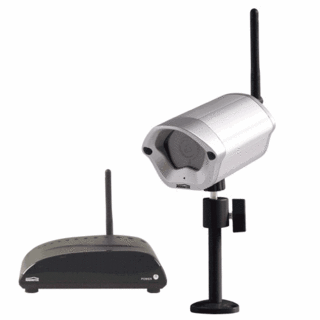Romania emerges as new world nexus of cybercrime
Published:
25 October 2003 y., Saturday
It was nearly 70 degrees below zero outside, but the e-mail on a computer at the South Pole Research Center sent a different kind of chill through the scientists inside.
"I've hacked into the server. Pay me off or I'll sell the station's data to another country and tell the world how vulnerable you are," the message warned.
Proving it was no hoax, the message included scientific data showing the extortionist had roamed freely around the server, which controlled the 50 researchers' life-support systems.
The FBI traced the e-mail to an Internet cafe in Bucharest and helped Romanian police arrest two locals - the latest evidence that computer-savvy Romanians are fast emerging as a bold menace in the shadowy world of cybercrime.
"It's one of the leading places for this kind of activity," said Gabrielle Burger, who runs the FBI's office in Bucharest and is working with Romanian authorities to arrest suspects.
Law enforcement documents obtained by The Associated Press portray a loosely organized but increasingly aggressive network of young Romanians conspiring with accomplices in Europe and the United States to steal millions of dollars each year from consumers and companies.
Their specialties: defrauding consumers through bogus Internet purchases, extorting cash from companies after hacking into their systems, and designing and releasing computer-crippling worms and viruses.
Alarmed authorities say the South Pole case underscores the global impact of this new breed of cyber-outlaw.
Today, Romanians get their first computer lessons in nursery school. Universities have top-notch IT programs whose graduates are heavily recruited by Western companies. Microsoft Corp. recently acquired GeCAD, a leading Bucharest data-security firm.
Šaltinis:
tallahassee.com
Copying, publishing, announcing any information from the News.lt portal without written permission of News.lt editorial office is prohibited.
The most popular articles
Software company announced new structure_ of it_s business.
more »
 Just a few weeks ago, the world's tiniest video camera was as small as a grain of rice. Today, the world's NanoEst camera is even smaller.
more »
Just a few weeks ago, the world's tiniest video camera was as small as a grain of rice. Today, the world's NanoEst camera is even smaller.
more »
 During the experiment two research groups managed to overcome a symbolic 100 TB/s optical fiber data transmission speed limit.
more »
During the experiment two research groups managed to overcome a symbolic 100 TB/s optical fiber data transmission speed limit.
more »
 Apple’s long–awaited online storage service for iTunes could be named iCloud, if only rumours are to be believed.
more »
Apple’s long–awaited online storage service for iTunes could be named iCloud, if only rumours are to be believed.
more »
 The founders of video-sharing site YouTube have bought bookmarking service Delicious from Yahoo.
more »
The founders of video-sharing site YouTube have bought bookmarking service Delicious from Yahoo.
more »
 The successful raid by hackers on Sony’s PlayStation Network is already being ranked among the biggest data thefts of all time.
more »
The successful raid by hackers on Sony’s PlayStation Network is already being ranked among the biggest data thefts of all time.
more »
 Apple has denied that its iPhones and 3G iPads have been secretly recording their owners' movements.
more »
Apple has denied that its iPhones and 3G iPads have been secretly recording their owners' movements.
more »
 Customers who have waited nearly 10 months for the white version of the iPhone 4 won’t have to wait much longer. The Great White iPhone 4 is finally here.
more »
Customers who have waited nearly 10 months for the white version of the iPhone 4 won’t have to wait much longer. The Great White iPhone 4 is finally here.
more »
 Researchers at Georgia Tech University are teaching a robot the basics of dialogue. Named "Simon", the robot has already been taught how to attract a person's attention but eventually, it's hoped he'll be able to interact and converse with humans in daily life.
more »
Researchers at Georgia Tech University are teaching a robot the basics of dialogue. Named "Simon", the robot has already been taught how to attract a person's attention but eventually, it's hoped he'll be able to interact and converse with humans in daily life.
more »
 3D? Terribly lame when it's tossed into devices as a bullet point feature. Trimensional for iPhone takes a picture of your face and maps your mug in a 3D model.
more »
3D? Terribly lame when it's tossed into devices as a bullet point feature. Trimensional for iPhone takes a picture of your face and maps your mug in a 3D model.
more »
 The European Union is to investigate whether internet service providers (ISPs) are providing fair access to online services.
more »
The European Union is to investigate whether internet service providers (ISPs) are providing fair access to online services.
more »